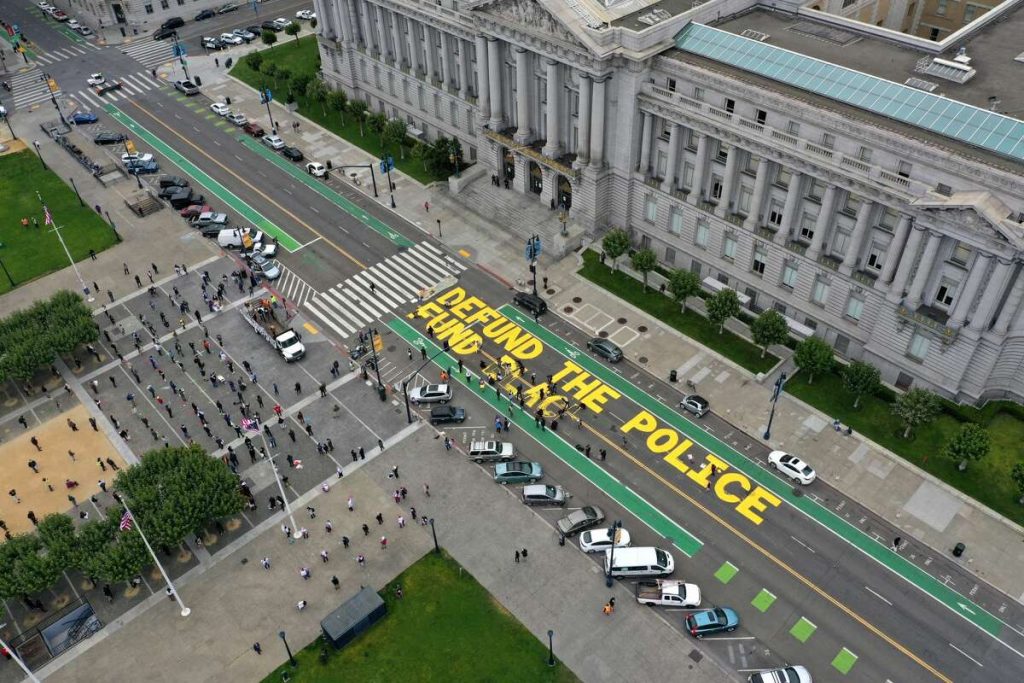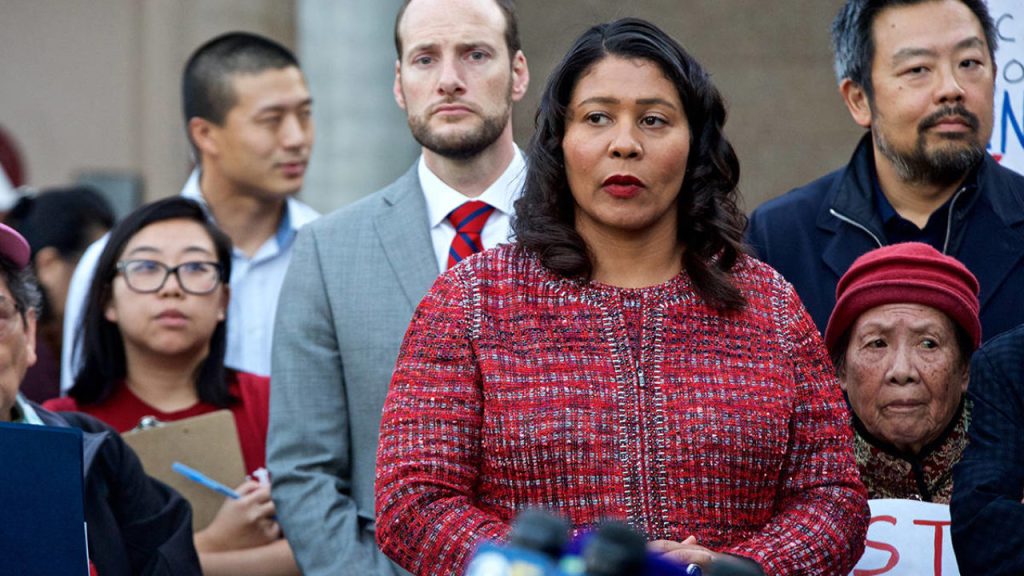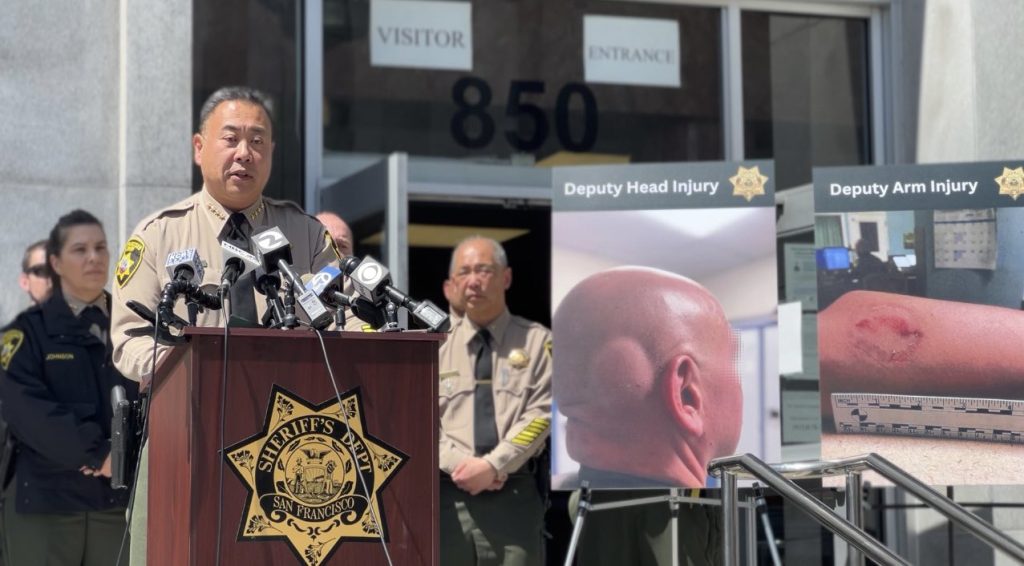San Francisco Mayor London Breed has become synonymous with the city’s worsening drug epidemic. Recently, a poll on X (formerly Twitter) dubbed her “Fentanyl Breed,” and the name couldn’t be more fitting. Since taking office, Breed’s policies and reforms have not only failed to curb the opioid crisis—they’ve exacerbated it, leading to over 3,000 overdose deaths during her tenure.

Despite the good intentions behind harm reduction strategies and supervised drug consumption sites, the reality is that Breed’s leadership has enabled a deadly cycle of addiction. Rather than reducing harm, these policies have facilitated drug use and turned San Francisco into a haven for addicts. The result? A staggering 212.7% increase in overdose deaths since 2018.
A City in Crisis: The Data Speaks for Itself
Let’s start with the numbers. From 2014 to 2023, San Francisco experienced a sharp rise in drug overdose deaths. Under Ed Lee, overdose deaths increased by 46%. During Mark Farrell’s brief tenure, the increase was 16.7%. But under London Breed? Overdose deaths skyrocketed by 212.7%, an unprecedented escalation.
- Ed Lee (2014-2017): 46% increase in overdose deaths
- Mark Farrell (2018): 16.7% increase in overdose deaths
- London Breed (2018-2023): 212.7% increase in overdose deaths
Under Breed, more than 3,000 San Franciscans have lost their lives to drug overdoses, many of these deaths tied to the rampant spread of fentanyl—a synthetic opioid 50 times more potent than heroin. While fentanyl was already present in the drug supply before her time, Breed’s policies enabled the crisis to spiral out of control.
Harm Reduction or Harm Creation?
The cornerstone of Breed’s public health strategy has been harm reduction—policies designed to reduce the negative consequences of drug use rather than eliminate it altogether. This includes clean needle programs, naloxone distribution, and her administration’s active push for supervised drug consumption sites. But with fentanyl’s extreme potency, these strategies have done little more than prolong the inevitable: death.
Instead of confronting the root of the crisis—addiction—Breed’s policies have normalized drug use. Supervised drug consumption sites, while touted as life-saving, are illegal under federal and state law. Despite this, Breed’s administration has been hell-bent on bringing these sites to the city, turning San Francisco into a lawless zone for drug users. These policies do not just overlook the problem; they perpetuate it.
Supervised Consumption Sites: Illegal and Dangerous
Supervised drug consumption sites are the most blatant example of Breed’s failed leadership. These sites, where individuals can legally use drugs under supervision, directly violate the Controlled Substances Act and California state law. Despite these legal barriers, Breed’s administration has pushed forward with plans to open these sites, effectively encouraging illegal activity within the city’s borders.
Let’s be clear: supervised drug consumption sites may reduce overdose deaths in the short term, but they also facilitate continued drug use. These policies send a message that drug use is acceptable, even supported. By creating these safe zones for drug users, Breed is actively attracting addicts to San Francisco. The result is not just more drug use but an influx of users from other cities and states, drawn to San Francisco by its reputation as a place where drug use is easy and consequence-free.
This is not harm reduction—this is harm creation.
Fentanyl: The Deadly Consequence of Breed’s Policies
Fentanyl’s extreme addictive nature and lethality cannot be overstated. Even the smallest miscalculation in dosage can lead to immediate overdose and death. Breed’s harm reduction policies, while perhaps effective with less potent drugs, fall dangerously short in the face of fentanyl. The distribution of clean needles, naloxone, and discussions of supervised consumption sites have not curbed the crisis—they have fueled it.
Breed’s refusal to prioritize aggressive treatment options or enforce stricter regulations on drug use has left San Francisco drowning in fentanyl. And with more people than ever flocking to the city for its lenient drug policies, the situation is spiraling out of control. Instead of stopping the flood, Breed has opened the floodgates.
Attracting More Drug Users to San Francisco
It is no coincidence that San Francisco has seen an increase in its homeless and drug-using population. Breed’s policies have created a magnet for those seeking a city where drugs can be obtained, used, and even facilitated by city officials. San Francisco has become a place where public drug use is rampant, and the city’s resources are overwhelmed.
By failing to enforce the law and instead advocating for policies that directly contradict federal and state drug laws, Breed and her administration have attracted thousands of drug users to the city, making the crisis worse. She violated her oath of office by promoting illegal activity and turning San Francisco into a sanctuary for addiction rather than a city of rehabilitation and recovery.
A Betrayal of Public Trust
Breed’s policies do more than violate the law—they betray the public trust. Every politician swears an oath to uphold the law, but Breed’s active support for policies that enable illegal drug use directly contravenes this responsibility. Instead of focusing on long-term solutions to addiction, Breed has perpetuated short-term fixes that do nothing to address the underlying causes of the crisis.
Supervised consumption sites, clean needle programs, and naloxone distribution are not enough to combat the power of fentanyl. By enabling drug use, Breed is not just turning her back on the law—she is turning her back on the people of San Francisco. The thousands of overdose deaths on her watch are a direct result of her failed leadership.
The Lives Lost on Breed’s Watch
With more than 3,000 overdose deaths under her leadership, London Breed has overseen the deadliest period in San Francisco’s modern history. Harm reduction, as practiced by her administration, has failed to reduce harm. Instead, it has created an environment where addiction flourishes, drug users flock to the city, and public safety is jeopardized.
The city needs leadership that will stand up to this crisis with real solutions—treatment, enforcement, and rehabilitation—not policies that enable addiction. London Breed has failed San Francisco. It’s time to recognize the deadly impact of her decisions and demand accountability.
San Francisco’s residents deserve a city that fights for their safety, not one that perpetuates harm. The crisis must end, and it begins with rejecting the failed policies of “Fentanyl Breed.”
Chart 1: Overdose Deaths Under London Breed
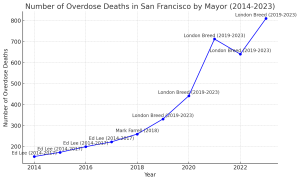
Chart 2: Timeline of Harm Reduction Efforts and Overdose Deaths
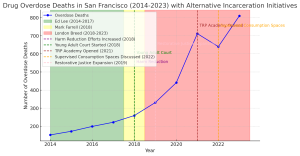
“Paid for by the San Francisco Deputy Sheriffs’ Association PAC. Not authorized by a candidate or committee controlled by a candidate. Financial disclosures are available at sfethics.org.”

 Today, September 9th, 2024, marks a pivotal moment for the San Francisco Sheriff’s Office. President Ken Lomba met with Sheriff Miyamoto to address two critical issues impacting our staffing and recruitment efforts: reforming the testing process and implementing second-step pay for new applicants.
Today, September 9th, 2024, marks a pivotal moment for the San Francisco Sheriff’s Office. President Ken Lomba met with Sheriff Miyamoto to address two critical issues impacting our staffing and recruitment efforts: reforming the testing process and implementing second-step pay for new applicants.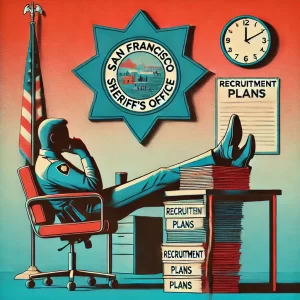 In the competitive landscape of law enforcement, the ability to attract and retain qualified personnel is not just a goal—it’s a necessity. For the San Francisco Sheriff’s Office (SFSO), however, this has become an area of significant failure. The challenges we face are not solely due to external factors or the inherent difficulties of law enforcement recruitment. Instead, much of the problem lies within the SFSO itself, particularly due to the lack of decisive action and strategic use of available resources by its leadership.
In the competitive landscape of law enforcement, the ability to attract and retain qualified personnel is not just a goal—it’s a necessity. For the San Francisco Sheriff’s Office (SFSO), however, this has become an area of significant failure. The challenges we face are not solely due to external factors or the inherent difficulties of law enforcement recruitment. Instead, much of the problem lies within the SFSO itself, particularly due to the lack of decisive action and strategic use of available resources by its leadership.
